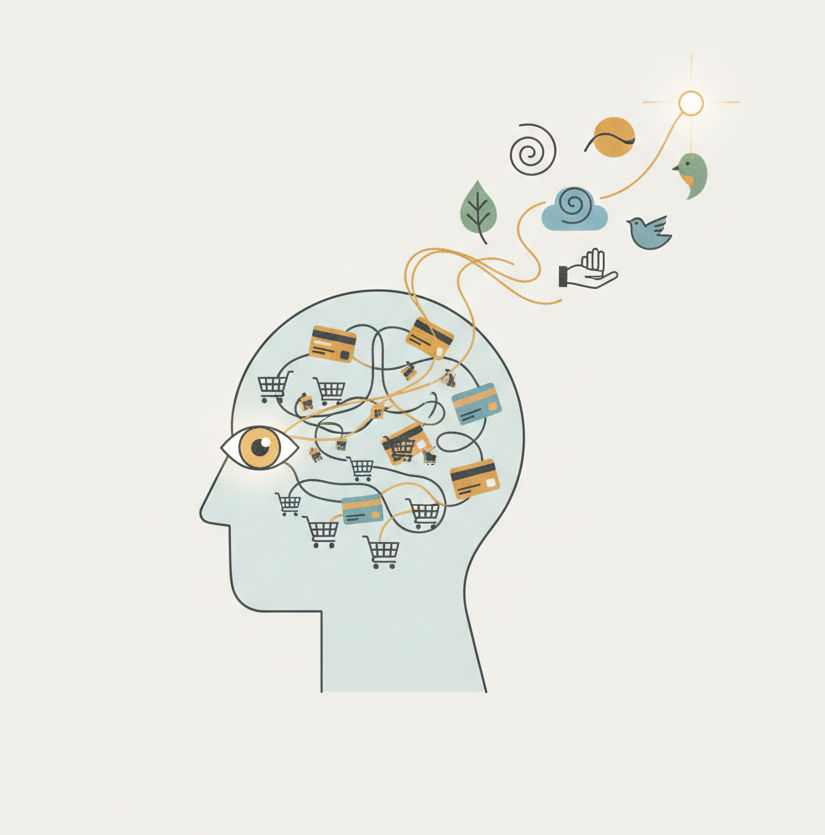Anchor Your Sanity with Meaning: How to persevere in times of crisis
- Bayu Dewanto
- May 23, 2025
- 4 min read
Life: The True Definition of Balance and Moderation
Life is the core manifestation of chaos and order. It is what makes them so painfully distressing, yet beautiful; so difficult to understand, yet alluring; and so unpredictably disordered, yet organized. These co-existing polar opposites are what make life the true definition of balance and moderation, making it a universal objective truth of nature. Needless to say, no matter its objectivity, the cold hard truth is that it can still be incredibly frustrating to make sense of life. Is it with us or against us?

Yin and Yang: A Philosophy that Anchors Life in Chaos and Order
In crisis—whether it’s because of failing to achieve your dreams, losing a job, or suffering the loss of a loved one—it is so easy for us to think that life must have a malicious intent against us, to put us in constant misery, a “rabbit hole” that seems to get deeper and deeper with every step and every breath we take, all with a seemingly minute chance for us to climb back to the top.
However, does life really have a personal vendetta toward us? Isn’t life just… life? Doesn’t it just exist, regardless of whether we exist or not in the first place? If so, isn’t it very likely that the narratives we tell ourselves are biased? After all, we’re not the only ones trapped by its constant grip of pain, suffering, and anxiety.
It is so interesting how the human mind creates stories to cope with the crisis of life. I believe that our constant “pangs” to create that story are driven by our primordial appetite to piece together things that we have yet to understand—which is life itself. However, since we have already established that we’re prone to biases, what kind of story should we tell ourselves in times of crisis then? Better yet, what principles should we anchor our stories on?
When Crisis Strikes, Values and Meaning Are All You Have
For Muslims, the true meaning of life is to surrender and submit to God. For Christians, it is to live a life full of faith and good works, according to the will of God. For Buddhists, it is to let go of worldly attachments and reach true enlightenment.
Outside of religion, philosophers and thinkers have also been trying to answer the question “what is the meaning of life?” But I think the true question really is: “What principle should we depend on to stay sane and make sense of life’s tragic suffering when, in and of itself, it cannot be understood in the first place?”
“He who has a why can bear almost any how.”— Friedrich Nietzsche
This is a quote from Nietzsche that I resonate with. He (us), who has a why (purpose and meaning in life), can bear (persevere through) almost any how (any crisis of life). I believe what makes this quote so beautiful is that it tells us we don’t always need to understand what to make of life. Really, what we need to focus on instead is figuring out why we are doing the things we do in the first place. Does it come from a deep-rooted meaning and purpose, or a shallow and easily disturbed motive?
A deep sense of meaning and purpose is what we need when we face a crisis. When something strenuous happens that tests our will, sanity, and motivation, it is what keeps us anchored—to push through and persevere, regardless of how difficult life can be. This fact is what makes parents continue to care for their children and raise them the best they can, regardless of the flaws, inconvenience, and fatigue that come with parenthood. It is because they believe their sons and daughters have the potential to make the world a slightly better place, which is a deep cause in itself.
When a crisis happens, we should look for our meaning. It is what keeps us sane when we should be insane. It is what keeps us motivated when we should be demotivated. And more importantly, it is what keeps us going in the right direction and living a fulfilling life—when we could easily stray toward the wrong path that leads to unnecessary suffering and pain. At the very least, meaning helps us experience only the necessary amount of suffering and pain. Because we cannot avoid it in life—we just need to learn how to live with it.
Stay Sane, Stay Meaningful
The next time we face a crisis, we should ask ourselves, “What matters to me now?” and “What meaning should I uphold to keep myself together?” Meaning should be deeply rooted in our being. Meaning cannot be shallow, as it can be easily shaken when crisis comes. Meaning cannot be hedonistic, as it will only last for the short term. Meaning cannot be materialistic, as it is tied to easily replaceable worldly attachments. Most importantly, meaning cannot be forced—you need to believe in it.
So, anchor your sanity with meaning, and persevere in times of crisis.




I think this writing has sentimental value for me because it reflects how I've beeb searching for meaning in what I do, in my role in my family, and in my work, It feels like I’ve been trying to build some kind of belief system for myself, something to hold onto when things don’t make sense or I barely overthink, It’s not always clear what I’m looking for, but writing like this helps me process things and understand myself a little better, because all this time I'm just going with the flow.